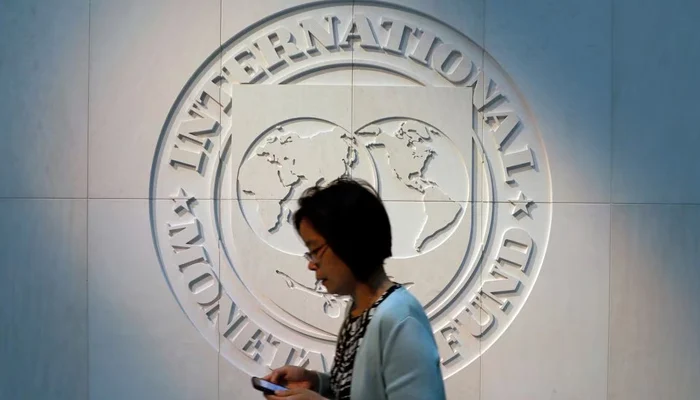- IMF Pakistan chief issues statement on delay in agreement.
- Says Fund has not attached any strings as reported.
- Talks focused on balance of payment issues, says Esther Perez.
ISLAMABAD: The International Monetary Fund (IMF) has rubbished claims that the multilateral lender had attached any nuclear-programme-related strings to the revival of a bailout stalled for months despite weeks-long talks between the two sides.
The lender is yet to approve the release of $1.1 billion originally due to be disbursed in November last year, leaving Pakistan with only enough foreign exchange reserves to cover one month’s imports.
Pakistan has been hosting an IMF mission since early February to negotiate the terms of the deal, including the adoption of policy measures to manage its fiscal deficit ahead of the annual budget due around June.
The funds are part of a $6.5 billion bailout package the IMF approved in 2019, which analysts say is critical if Pakistan is to avoid defaulting on external debt obligations.
Veteran politicians Senator Raza Rabbani and former foreign minister Shah Mahmood Qureshi had raised concerns about whether the delay in the staff-level agreement with the Fund has anything to do with the country’s strategic assets including the nuclear and missile programmes.
They have asked the government to come clear on this issue.
In a statement released to the media on Sunday, IMF resident representative in Islamabad Esther Perez Ruiz denied attaching any strings to the External Fund Facility (EFF).
“Regarding recent speculation that programme discussions with the authorities for the ninth review under the IMF-supported programme may have covered Pakistan’s nuclear weapons programme, I want to be categoric that there is absolutely no truth to this or any insinuated link between the past or current IMF supported programme and decision by any Pakistani government over its nuclear programme,” the official said.
The IMF chief further said that the discussions have exclusively focused on economic policies to solve Pakistan’s economic and balance of payments problems, in line with the Fund’s mandate for promoting macroeconomic and financial stability.
‘No compromise on nuclear, missile programme’
On Thursday, Finance Minister Ishaq Dar promised that there would be no compromise on the country’s nuclear and missile programme.
The finance minister made the statement in the Senate in response to Senator Raza Rabbani’s questions about the delay in signing the agreement with the IMF.
Rabbani regretted that the upper House of the Parliament had “neither before nor today been taken into confidence on what are the conditionalities of the IMF” for extending the loan facility to Pakistan.
He had termed the delay “absolutely out of the ordinary, extraordinary” saying: “The question arises […] if the delay is being made because of some sort of pressure to be exerted on Pakistan’s nuclear [programme].”
In response, Ishaq Dar told the special session in categorical terms that there would be no compromise on the country’s nuclear and missile programmes.
“Let me assure you that nobody is going to compromise anything on the nuclear or the missile programme of Pakistan… no way,” he had added.
The minister promised the moment the staff-level agreement and EFFP (Extended Fund Facility programme) was finalised, it would be placed on the website of the finance ministry.
He made it clear that nobody had any right to tell Pakistan what range of missiles it could have and what nuclear weapons it could possess.
“We have to have our own deterrence, as we represent the people of Pakistan and we have to guard our national interests,” he maintained.

 Latest News5 hours ago
Latest News5 hours ago
 Latest News5 hours ago
Latest News5 hours ago
 Business5 hours ago
Business5 hours ago
 Latest News5 hours ago
Latest News5 hours ago
 Entertainment5 hours ago
Entertainment5 hours ago
 Uncategorized46 minutes ago
Uncategorized46 minutes ago
 Latest News29 minutes ago
Latest News29 minutes ago
 Latest News23 minutes ago
Latest News23 minutes ago
























